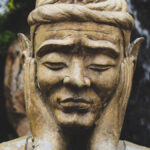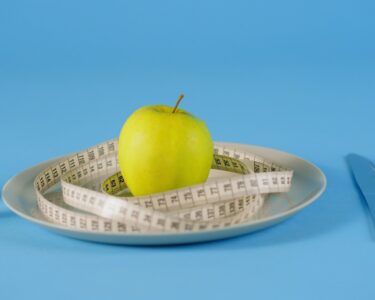The effectiveness of acupuncture has come under greater scrutiny over the last decades, and I couldn’t be more thrilled. The scientific process is helping to prove what we’ve always asserted — that acupuncture works. In fact, Medicaid’s own rigorous studies convinced them to offer acupuncture as a covered service. So, why is there still skepticism about its use?
In part, this is because of how simple treatments are. A few needles and 30 minutes of rest can make a big difference. But how can this be? The truth is that acupuncture’s simplicity belies a complex internal world Western science has begun to unveil.
How Does It Work?
A great deal of information has been gathered concerning the physiological effects of acupuncture. We know that it dampens the need for pharmaceuticals in the treatment of pain by stimulating release of the body’s endogenous opioids. This covers the gamut of musculoskeletal conditions that Western pain specialists struggle with: back and neck pain, frozen shoulder, sciatica, etc.
That’s only a small part of its scope, however. Acupuncture can modulate smooth muscle via the autonomic nervous system, thus affecting the airways, stomach, bowels and blood pressure. It has also been effective in the treatment of PTSD, depression, addiction and other emotional and psychological disorders.
What Does It Treat?
The World Health Organization compiled a list of conditions acupuncture can help with, which contains over 100 illnesses. These range from low-back pain to alcohol dependency, insomnia to infertility. For the sake of brevity, here are some highlights:
- Pain anywhere
- Sciatica
- Weight loss
- PMS
- Migraines
- Infertility
- Addiction
- Bell’s palsy
- Stress/Anxiety
- Arthritis
- GI discomfort
- TMJ
Aside from all the ways it helps medically, acupuncture is also an excellent way to reduce fine lines and wrinkles. It’s gained a lot of popularity in cosmetic circles as an alternative to Botox® and facelifts.
It’s also important to note that acupuncture is only one tool. Separating it from the wider context of traditional Chinese medicine is like calling a flu shot the full spectrum of modern medicine. Practitioners offer electro-acupuncture, cupping, moxibustion and herbal medicine as common adjuncts to treatment, in addition to guidance on lifestyle and diet.
Does It Hurt?
Needles are no one’s favorite thing, but the needles used in acupuncture are thinner than a beard hair. Sensation is determined by constitution and location, but most of the time you’ll hardly feel it. This is a major barrier to whether people give acupuncture a try, but I promise that whatever you have in mind is much worse than the reality.
Acupuncture has suffered from its mysterious reputation in the West. However, in China, acupuncturists work in hospitals alongside MDs, as I have. Treat it like any other medicine because it works, and you deserve to feel better.














 Deering Estate
Deering Estate
 Massage Envy South Miami
Massage Envy South Miami
 Calla Blow Dry
Calla Blow Dry
 My Derma Clinic
My Derma Clinic
 Sushi Maki
Sushi Maki
 Sports Grill
Sports Grill
 The Healthy Kitchen
The Healthy Kitchen
 Golden Rule Seafood
Golden Rule Seafood
 Malanga Cuban Café
Malanga Cuban Café

 Kathleen Ballard
Kathleen Ballard
 Panter, Panter & Sampedro
Panter, Panter & Sampedro
 Vintage Liquors
Vintage Liquors
 The Dog from Ipanema
The Dog from Ipanema
 Rubinstein Family Chiropractic
Rubinstein Family Chiropractic
 Your Pet’s Best
Your Pet’s Best
 Indigo Republic
Indigo Republic




 ATR Luxury Homes
ATR Luxury Homes


 2112 Design Studio
2112 Design Studio
 Hamilton Fox & Company
Hamilton Fox & Company
 Creative Design Services
Creative Design Services
 Best Pest Professionals
Best Pest Professionals
 HD Tree Services
HD Tree Services
 Trinity Air Conditioning Company
Trinity Air Conditioning Company
 Cisca Construction & Development
Cisca Construction & Development
 Mosquito Joe
Mosquito Joe
 Cutler Bay Solar Solutions
Cutler Bay Solar Solutions


 Miami Royal Ballet & Dance
Miami Royal Ballet & Dance
 Christopher Columbus
Christopher Columbus
 Pineview Preschools
Pineview Preschools
 Westminster
Westminster
 Carrollton
Carrollton
 Lil’ Jungle
Lil’ Jungle
 Frost Science Museum
Frost Science Museum
 Palmer Trinity School
Palmer Trinity School
 South Florida Music
South Florida Music
 Pinecrest Orthodontics
Pinecrest Orthodontics
 Dr. Bob Pediatric Dentist
Dr. Bob Pediatric Dentist
 d.pediatrics
d.pediatrics
 South Miami Women’s Health
South Miami Women’s Health

 The Spot Barbershop
The Spot Barbershop
 My Derma Clinic
My Derma Clinic




 Miami Dance Project
Miami Dance Project

 Rubinstein Family Chiropractic
Rubinstein Family Chiropractic
 Indigo Republic
Indigo Republic

 Safes Universe
Safes Universe
 Vintage Liquors
Vintage Liquors
 Evenings Delight
Evenings Delight





 Atchana’s Homegrown Thai
Atchana’s Homegrown Thai
 Baptist Health South Florida
Baptist Health South Florida

 Laser Eye Center of Miami
Laser Eye Center of Miami
 Visiting Angels
Visiting Angels
 OpusCare of South Florida
OpusCare of South Florida

 Your Pet’s Best
Your Pet’s Best





 HD Tree Services
HD Tree Services
 Hamilton Fox & Company
Hamilton Fox & Company


 Creative Design Services
Creative Design Services